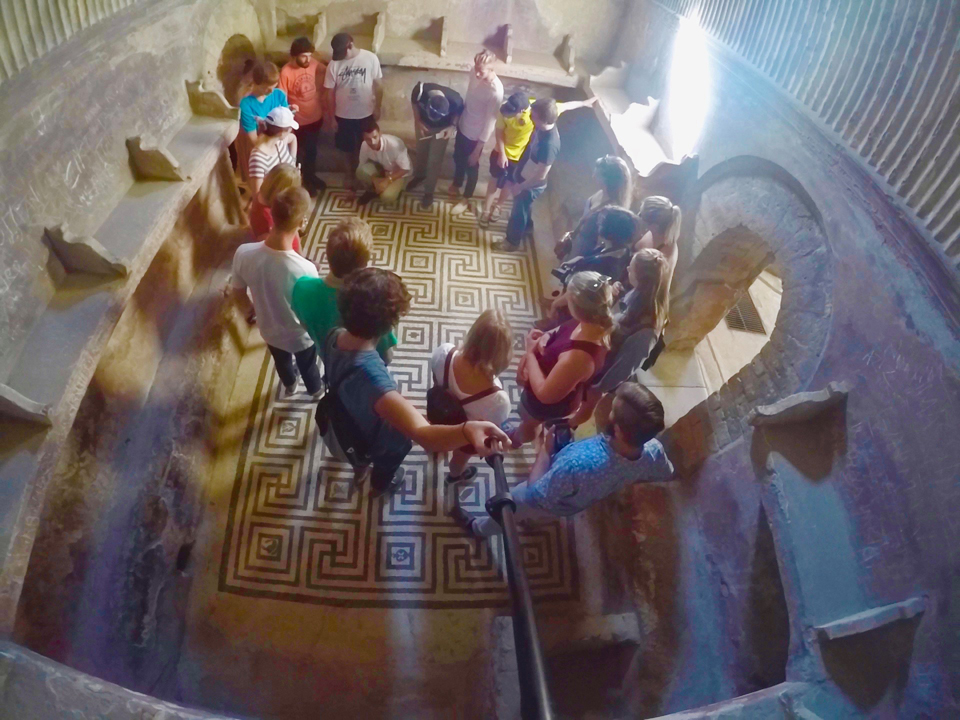To what degree is each of us a good person? Most of us probably see ourselves as a generally good person while recognizing that we occasionally behave in morally or ethically questionable ways. None of us is perfect, and there is always room for improvement. Right? Well, researchers of moral psychology want to know not only the degree to which each of us is a good person but also how we generally become good people.

Tonia Bock
Consider for a moment two extreme historical examples: Martin Luther King Jr. and Adolph Hitler. The degree to which each was a good person is a rather stark contrast. One worked to alleviate gross societal injustices and oppression while the other worked to instigate it. How did each get to be such a person?
We can look to historical biographical sources, of course, to help answer this question. Yet we also want a more general answer that applies not only to these two individuals but also to you and me, and our young generation in particular. How do infants become morally upright adults? Ultimately, psychologists studying morality, such as myself, want to understand moral development so that we can inform teachers how to facilitate, strengthen and support future generations’ moral character. Some psychologists (e.g., the late Lawrence Kohlberg) dedicate their entire career to advance our knowledge of moral development so that we can educate our young to be more like King and less like Hitler.
One of the first generations of psychologists studying moral development (e.g., Kohlberg) focused on understanding how our reasoning about right and wrong changes from childhood to adulthood. The psychologists believed that adults who grow to reason in morally principled ways will behave morally. Plato once said, “To know the good is to do the good.” If we know the morally principled thing to do, then we will do just this. Right? Certainly this early generation of psychologists believed as much. Many studies since have shown that the psychologists weren’t necessarily wrong – there is a positive correlation between moral reasoning development and moral behavior; however, the correlation, even though it is statistically significant, is pretty small, meaning that knowing the right thing to do does not always lead to the person doing the right thing. We have countless examples of this from history as well as from our everyday lives. We regularly see news stories about politicians and Hollywood stars who do things they know are wrong. If we look closely at ourselves, we see that we also sometimes do things we know are wrong, except that unlike the politicians and stars, our wrongdoings are not usually news headlines.
So if people know the right thing to do, why don’t they just do it? This question has inspired some psychologists studying morality to turn their attention away from moral knowledge and reasoning to a concept called moral identity. What is moral identity? It is generally defined as the degree to which moral concerns (e.g., justice, caring, generosity) are a central part of one’s identity (i.e., your sense of who you are). It is a somewhat new concept, with psychologists starting to develop slightly different conceptualizations. Regardless of how psychologists are conceptualizing moral identity, they all assume and are interested in individual differences, meaning that some individuals have a strong moral identity while others have a weak one. Individuals with a very strong moral identity prioritize moral commitments over all other nonmoral commitments, obligating themselves to live consistently with their respective moral concerns; thus, one who has a strong moral identity would feel compelled to be a good person, at least respective to his or her prioritized moral commitments. Theoretically, then, these people would not only know the good but also prioritize and consistently do the good. A person with a weak moral identity, on the other hand, would highly prioritize nonmoral commitments (e.g., having wealth, being attractive, being popular) over moral commitments; thus, he or she would be more likely to know the right thing to do but not act accordingly with their knowledge, presumably because they are more driven by their highly prioritized nonmoral commitments.
Being a psychologist who studies morality, I of course find this notion of moral identity to be quite fascinating. My particular interest in this area surrounds two specific questions: How do we think moral identity is developed over time? How do we best assess people’s moral identity? Given that psychologists are still working on their theoretical conceptualizations of moral identity, there is a lot of work to be done on answering both of these questions. I’ll briefly sketch out some of the ideas and challenges that lie ahead for us.
If psychologists presume that individuals vary in how strong their moral identity is, then they should have some idea about how these differences emerge over time; currently, it seems we have some very general ideas. Some psychologists mention the importance of parenting in early childhood, describing how parents who frequently, consistently and jointly attend to the moral dimensions of situations with their young child will help them to not only build mental images of what it means to be a moral person but also construct memories of morally relevant events and interactions.
Other psychologists have focused on the importance of moral identity formation in adolescence. According to them, adolescence is a time of unique growth in cognitive, social and personal understandings. Individuals in their teens (and early 20s) become better able to construct more complex notions of who they are, now being able to incorporate abstract ideals and traits, possibly moral, into their sense of identity. To date, the most specific theory of moral identity formation argues that individuals must simultaneously develop and increasingly prioritize the values of (a) benevolence and (b) achievement. As the theory goes, these two values are initially independent from one another. As they become increasingly prioritized, the person cannot allocate his or her attention and resources to both – the person either needs to choose one over the other or integrate them. According to this theory, those who integrate the values of benevolence and achievement in their goals and commitments are those who have the strongest moral identity. Initial research has supported such a developmental model, but there is a long road ahead to more fully verifying it. It is hoped that additional explanations and models of moral identity development will also be advanced in the near future to paint a more complete picture of moral identity development from birth through old age.
My other interest in moral identity is how we should best assess it. The currently existing assessments have faced some rather serious criticisms. A few paper-pencil surveys of moral identity exist. The advantages of this type of assessment are that they are very easy for researchers to use and participants to complete. For example, one assessment has several virtues listed at the top of the survey (e.g., caring, fair, generous). Participants are then asked to indicate whether they agree or disagree with several statements about the importance of these virtues. Not surprisingly, all participants rate these virtues as being important to who they are. Individual differences exist, but they are very small.
The main criticism is that surveys such as these underestimate the individual differences in moral identity because, well, who would want to acknowledge that these virtues are not important to them? Psychologists call this social desirability bias, and it is a frequent issue in any research that deals with morality.
The other type of moral identity assessments are lengthy, intensive individual interviews. Social desirability is less of an issue because researchers ask rather general open-ended questions about how the interviewees describe themselves. The main disadvantage, though, is the time and energy it takes psychologists to not only conduct the interviews but also reliably code and analyze the data. Few researchers use this method, and when they do, it takes a rather long time to complete the entire research process.
These are just a few examples of the issues and challenges that researchers currently face in studying moral identity. I am quite confident that exciting theories and research are yet to come. I am most curious about how important researchers will find moral identity to be in doing the good. Maybe one day we can modify Plato’s saying to read, “To prioritize the good is to do the good.”
Read more from CAS Spotlight.





